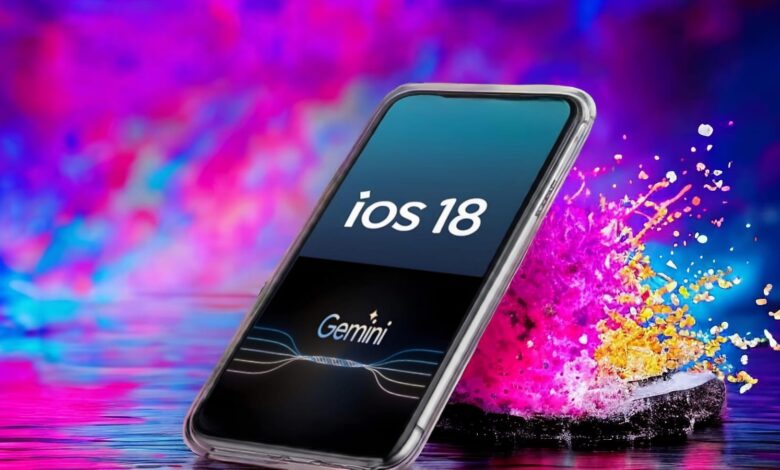iOS 18 New Horizon: Apple Taps Google Gemini for a Smart Evolution

Apple’s venture into integrating artificial intelligence (AI) into iOS 18 is creating significant buzz, as the tech giant is reportedly in discussions with several major AI firms. This collaboration could bring a suite of AI-powered features to iPhones, marking a significant leap forward in mobile technology.
iOS 18 is shaping up to be a pivotal update for Apple, with a heavy emphasis on generative AI technology. The company’s strategy aims to keep pace with AI advancements made by Google, OpenAI, Microsoft, and Anthropic. This includes a range of AI-driven enhancements, from a smarter Siri, powered by Apple’s own large language model system dubbed AppleGPT, to innovative applications in Apple Music, Xcode, and the Messages app. For instance, new AI features in Xcode are designed to streamline the app development process, making it faster and easier for developers to create high-quality applications for Apple’s platforms.
Collaborations and Capabilities
This strategic move suggests that while Apple is exploring the AI landscape broadly, including possible engagements with Anthropic and its Claude 3 AI model, the collaboration with Google’s Gemini might be at the forefront of Apple’s AI integration efforts for iOS 18. The partnership with Google could potentially mark a major milestone in bringing sophisticated AI functionalities to iPhone users, offering new capabilities and enhancing user interactions through advanced AI features. This collaboration could indeed represent a leap forward in making iOS 18 one of the most AI-forward updates in the iPhone’s history.
This collaboration could see cloud-based generative AI models being integrated into Siri and other applications, while on-device features may still be powered by Apple’s technology. Despite facing challenges with Gemini, including issues with image generation and election-related queries, Google’s expertise in smartphone related features demonstrated through partnerships with Samsung and integrations into its own Pixel phones places it in a strong position to contribute to iPhone enhancements.
Additionally, Apple has held discussions with OpenAI and is considering using GPT models to further enhance iOS capabilities. These discussions reflect Apple’s commitment to leveraging the best AI technologies to improve the user experience on iPhones.
Historical Alliance

Apple and Google, traditionally seen as competitors, have embarked on notable collaborations that benefit both companies and their users:
- One key partnership is the development of a Coronavirus contact tracing system, which utilizes smartphones and Bluetooth to alert individuals to potential exposures.
- Another collaboration focuses on creating a shared smart home standard alongside the Zigbee Alliance, aiming to enhance interoperability among smart home devices.
- Additionally, Apple uses Google’s cloud services for its iCloud storage. Through this partnership, iCloud benefits from Google’s vast server network and advanced data management technologies, ensuring that user data is not only reliably stored but also protected with advanced encryption techniques.
These collaborations between Apple and Google highlight a strategic shift towards cooperation in areas of health, safety, and technology infrastructure, showcasing a mutual commitment to advancing industry standards and user experiences.
Looking Ahead
As we approach the Worldwide Developer Conference (WWDC) where iOS 18 is expected to be unveiled, anticipation is building for what could be one of Apple’s most AI-centric updates yet. With the potential integration of Google’s Gemini AI and Apple’s ongoing development of AI features across its ecosystem, iOS 18 promises to bring a new level of intelligence and functionality to iPhone users.
Apple’s strategic exploration of partnerships and its development of proprietary AI technologies underscore the company’s determination to remain at the forefront of the rapidly evolving AI landscape. The integration of AI into iOS 18 could redefine the way we interact with our devices, making them more responsive, intuitive, and capable than ever before.





